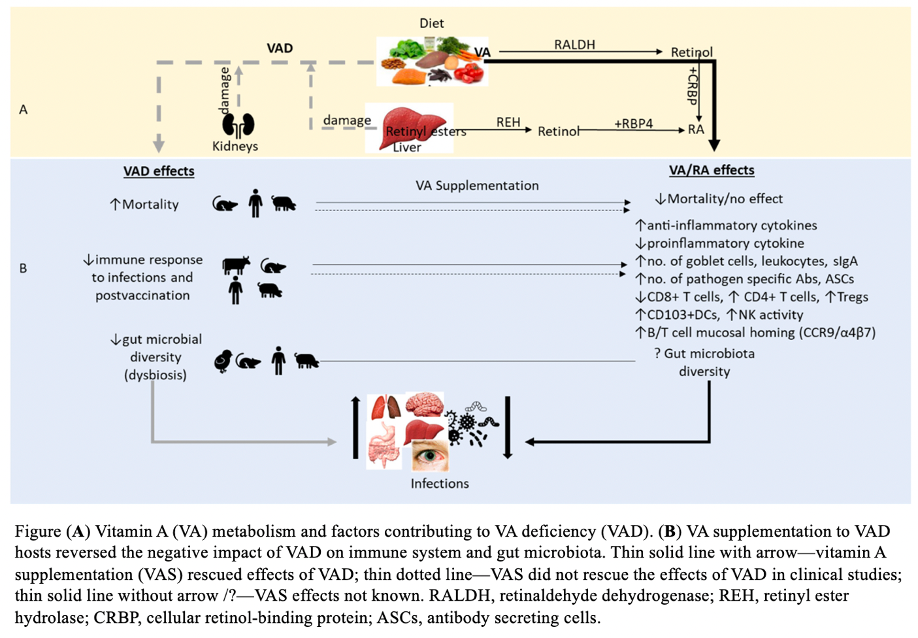Vitamin A affects cell integrity, cytokine production, activation of innate immune cells, antigen presentation, and lymphocyte trafficking to mucosal surfaces. Vitamin A has also been reported to affect the composition and diversity of the gut microbiota (Immune impairment associated with vitamin A deficiency).
Thus, vitamin A deficiency leads to the imbalanced production of inflammatory and immunomodulatory cytokines, intestinal inflammation, weakened mucosal barrier functions, reduced reactive oxygen species, and disruption of the gut microbiome.
The reviewed literature also confirms a threefold relationship between vitamin A deficiency, immune response, and infection, as vitamin A deficiency affects the immune response, making the host susceptible to infection, and infection reduces intestinal absorption of vitamin A, thus contributing to the development of secondary vitamin A deficiency. Furthermore, the immune system affords its host certain control over the composition of their commensal microbiome, but these commensals can be perturbed by vitamin A deficiency-induced immune system deficiencies, thereby profoundly impacting the host’s health.
In summary, a deeper understanding of the relationship between vitamin A deficiency, immune response, gut microbiota, and infection, and a deeper understanding of the molecular mechanisms underlying these interactions, is essential for optimizing vaccine efficacy and the development of effective immunization programs for countries with a high prevalence of vitamin A deficiency, as well as for designing effective strategies to improve human and animal health.

Amimo, J. O., Michael, H., Chepngeno, J., Raev, S. A., Saif, L. J., & Vlasova, A. N. (2022). Immune Impairment Associated with Vitamin A Deficiency: Insights from Clinical Studies and Animal Model Research. Nutrients, 14(23), 5038. [Link]
